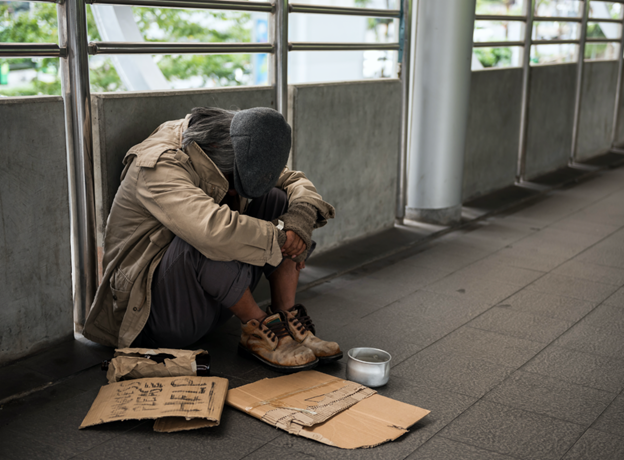
NJMS Students Practice Virtual Poverty Simulation Exercise
Did you know that as many as 27 percent of all Newark residents live below the poverty line? NJMS is committed to providing students with the educational resources that enable them to provide compassionate care to all of the members of our community, and even amidst COVID-19, this semester was no different.
This semester, third-year pediatric clerkship students at NJMS completed the social determinants of health curriculum virtually.
Students began the course by listening to a podcast on the social determinants of health. Then, they participated in a virtual small group case based on a simulated poverty exercise.
Students were provided a brief case scenario developed by NJMS in conjunction with Rutgers Law School professor Jenny Valverde, Esq. The case scenario involved a parent and her children living in Newark and included details on the parent's monthly income.
In groups of three to four, the students worked together to complete a budgeting worksheet, calculating to the last dollar how to distribute the monthly income to cover rent, utilities, food, and non-food items such as diapers and toiletries.
After completing the budgeting worksheet, the students were asked to reflect on any stereotypes or biases that they identified during the session, including those regarding food insecurities, poverty, and budgeting overall. Then, the students shared their reflections with the larger group.
At this time, students reflect on several "what ifs:" what if one of the children were hospitalized, how would this affect the parent's ability to provide for the other children? What if the parent had no vehicle and needed to bring both children via public transportation to a doctor's visit across town?
Finally, students are provided with an informational guide for doctors that was developed by Rutgers Law School as part of their medical-legal partnership. This informative guide provides an outline of local resources for families, including childcare subsidy programs, utility assistance programs, phone assistance programs, and the public housing program.
"This interactive simulated poverty exercise allows students to gain better insight into the challenges local families may face," said Dr. Christin Traba, associate dean for education. "Now, students can expand the questions they ask patients and families during evaluations in clinic or at the hospital, and potentially connect these families with the resources that are available."
To learn more, click here or contact Drs. Christin Traba and Sophia Chen at morancm@njms.rutgers.edu and chensw@njms.rutgers.edu.
